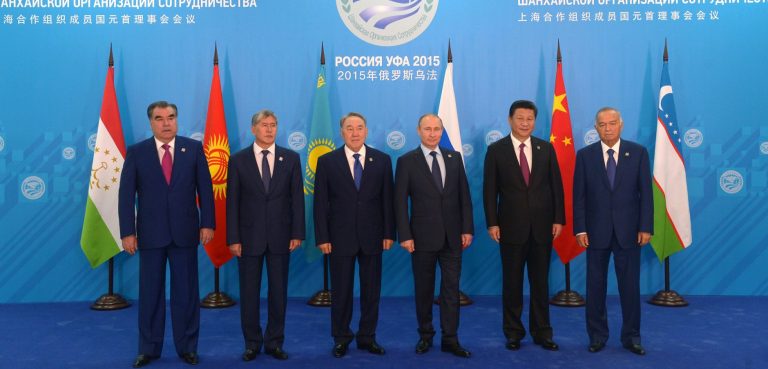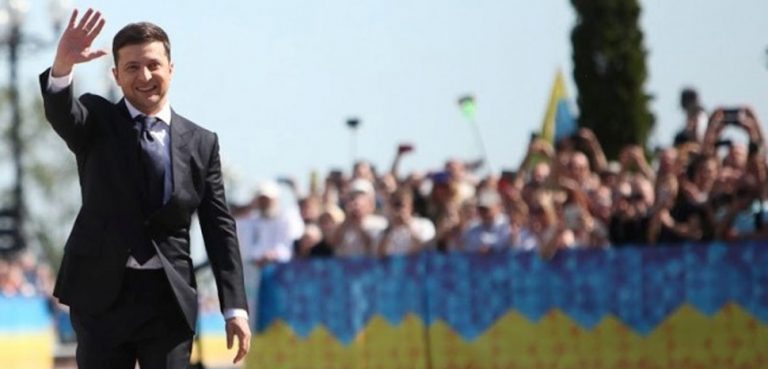The arrest of German citizen Jian Guo on 23 April 2024, catapulted the Alternative for Germany (AfD) party back into the center stage of German and European politics. Accused of acting as an agent for the Chinese Communist Party (CCP), Guo had been a parliamentary assistant for Maximillian Krah, the AfD’s lead candidate in the upcoming European elections. If true, these allegations represent yet another attempt by the CCP to compromise and spy on the political environment of the West, using a tried and tested strategy. For the AfD, Guo’s arrest raises further questions about the party’s close ties to China, solidifying the view that it has become a trojan horse for hostile state actors to undermine German and European democracy.
Krah is not the first AfD politician to have murky connections with authoritarian regimes, having previously been questioned by the FBI over allegedly receiving payments from Russian agents. Another leading AfD candidate for the European Parliament’s June elections, Petr Bystron, has his own troubled history with hostile state actors. In the same week that news of Krah’s aide broke, Bystron was accused of taking €20,000 from a pro-Kremlin news broadcaster, Voice of Europe. The allegations were brought to light by Czech intelligence, who claimed to have video evidence of Bystron receiving the cash from a senior figure within Voice of Europe at a time when the website had been sanctioned by the Czech government. These developments, coupled with the fact that members of the AfD had been invited to ‘observe’ Russia’s recent elections, expose the AfD as one of many conduits for Russian influence in Europe.
For Moscow, the benefits of pursuing such a relationship are clear – and Beijing has clearly taken notice. Over the course of 2023, the AfD consistently fought the Kremlin’s battles in Germany, with the Bavarian branch of the party calling for a shift away from the West, to stop arming Ukraine, and to lift all sanctions against Russia. From Putin’s perspective, this strategy is not intended to influence German decision-making into actually adopting any of these measures, but rather to simply introduce such ideas into the country’s political discourse, muddying debates on Russia. At a time when greater political scrutiny is being directed China’s way, having allies and spies adjacent to power can only help to alleviate such pressure. Despite an absence of evidence, one should not rule out entirely the potential that Beijing and Moscow are colluding with one another to identify potential soft spots for such purposes within Europe’s political landscape.
Chinese engagement with the AfD dates back at least as far as 2019. Back then, Krah was once again the politician in the CCP’s eyeline. Traveling with his now arrested aide Guo, Krah was invited on an all-expenses-paid trip to China by Huawei, although Krah disputes that the state-run tech company paid for anything other than a train ticket. This trip came just months after Krah was first elected to the European parliament, raising serious concerns that he had become – or was becoming – a Chinese asset within the EU. Since the trip, Krah has described concerns about Chinese policy in Xinjiang as ‘anti-China propaganda without facts,’ whilst supporting the CCP’s territorial claims to Tibet and Taiwan. In the European parliament, Krah’s voting record would have been looked upon favourably from Beijing, with the MEP shying away from criticism of China and coming to the defense of Huawei.
Once again, the recipient of a fully funded trip to China, Krah would go even further in 2021. On this occasion, the AfD MEP was invited to visit the Tibet Autonomous Region, on the 70th anniversary of the Chinese occupation of the region. Seemingly in exchange for his undoubtedly tightly controlled ‘tour’ of Tibet, Krah went on to record and publish a video on YouTube, which has since been deleted. In the video, Krah is seen standing against the backdrop of a scenic Tibetan meadow, before praising the CCP for their successful administering of the province. Despite reports to the contrary, Krah praised China’s protection of religious freedom in Tibet, pointing out how Monks are allowed to freely practice their faith, whilst new temples are built thanks to generous donations from the state. Videos such as these add a great deal of legitimacy to China’s claims that they are a force for good in Tibet. Irrespective of his questionable loyalties, the fact that an elected member of the European parliament is saying such things adds credibility to those who wish to denounce claims of CCP wrongdoing in Tibet as Western lies.
Furthermore, whilst the AfD and the CCP may seem like strange bedfellows, their collaboration should not come as a surprise. After all, at a very basic level the party and these countries align on some fundamental beliefs. The AfD, among many other things, have long advocated for isolationist policies, including Euroscepticism, and withdrawing military support for Ukraine. These beliefs very neatly align with the CCP’s desire to weaken the EU and the Western bloc of nations that are becoming increasingly hostile to its government. Therefore, whilst the AfD’s anti-immigration rhetoric may suggest an alliance between German nationalists and foreign powers is nonsensical, when one considers the pair’s ideological convergence, the partnership becomes far clearer.
The problem with Chinese interference in Germany extends past just its involvement with the AfD. At the same time as the AfD became embroiled in scandals, three German citizens were arrested by police on suspicion of spying for China. The three citizens, two men and one woman, had been allegedly passing highly valuable technical military expertise to their CCP handlers in exchange for money. According to prosecutors, the trio were motivated solely by financial gain and had no other incentive or political reasoning for doing what they did. This is believed to have been part of a very long-term espionage campaign which began at some point after 2002. The three German citizens were recruited by the Ministry of State Security (MSS), the Chinese secret service, which paid them tens of thousands of euros for the information passed on.
In response, the German minister of the interior, Nancy Faeser, stated that the German government was ‘aware of the considerable danger posed by Chinese espionage to business, industry, and science,’ adding that the government would be increasing ‘protective measures’ to ensure that such incidents could not occur again. However, the reality is that such incidents are unfolding not just in Germany but throughout the West. In the UK, on 22 April, two men were charged with violating the Official Secrets Act, for sharing information with the Chinese that was considered ‘useful to an enemy.’ In Germany, Russia was also implicated in an espionage scandal of its own. In this case, two men were arrested on suspicion of plotting sabotage attacks, including on US military facilities, in attempts to undermine German military support to Ukraine.
As a major EU member and NATO ally, Germany is now faced with a significant threat from the two most powerful autocracies. Whilst the AfD remain some way from becoming the ruling party in Germany, the scandals of the past month suggest that China has set its sights on the country, irrespective of which political party holds the most sway in the Bundestag. The AfD simply provides both Beijing and Moscow with the vehicle to influence political discourse in Germany, with the aim of building opposition to the country’s support for Ukraine, as well as undermining the efforts of the government and civil society to draw attention to China’s history of human rights abuses in Xinjiang, Tibet, and Hong Kong, and dissuading the public from supporting Taiwanese independence.
Marcus Andreopoulos is a Senior Research Fellow at the international policy assessment group, the Asia-Pacific Foundation, and a Subject Matter Expert with the Global Threats Advisory Group at NATO’s Defence Education Enhancement Programme. Marcus is currently pursuing a PhD in international history at the London School of Economics and Political Science (LSE).
The views expressed in this article belong to the author(s) alone and do not necessarily reflect those of Geopoliticalmonitor.com.




